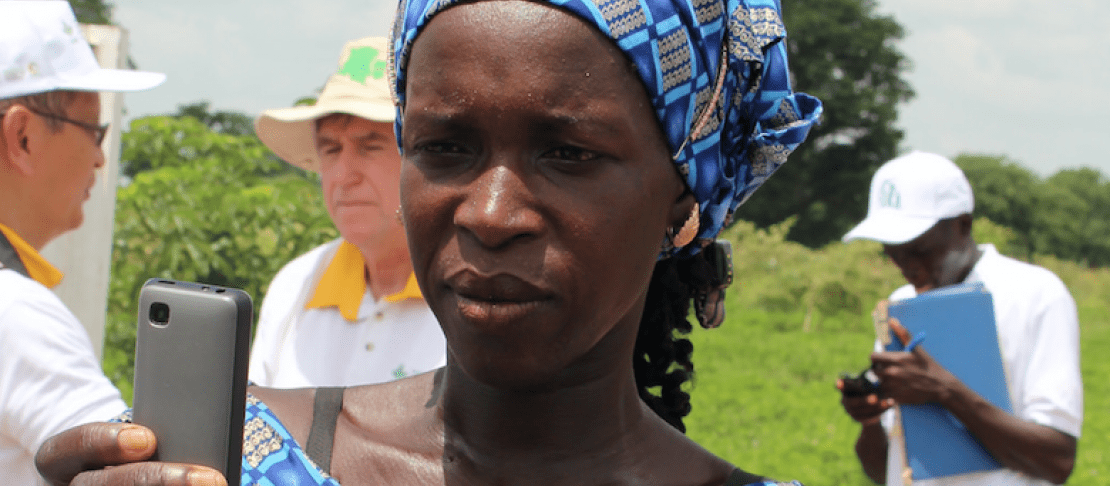Improving women’s access to climate information services will improve their ability to adapt to climate risks

Unequal access to climate information services is a threat to women’s ability to mitigate climate risks, a CCAFS gender-based study reveals.
Improving farmers’ access to climate information services (CIS) for decision-making is essential for mitigating climate-related risks in agriculture in Africa. In Ghana, CCAFS initiated a pilot project aimed at disseminating sustainable and equitable CIS to farmers through mobile phone platforms for strategic farm management decisions that help them adapt to climate change and variability.
The project has been implemented in the Lawra-Jirapa Climate-Smart Villages (CSVs) through a fruitful partnership with Esoko and the Ghana Council for Scientific and Industrial Research (CSIR). From 2011 to 2016, Esoko disseminated downscaled seasonal forecast information as well as agro-advisories to farmers on their mobile phones. This information was relayed as voice alerts, SMS or by calling, according to the options selected by the 1000 farmers subscribing to the Esoko platform.
In a recently published CCAFS paper, "Gender and climate risk management: evidence of climate information use in Ghana," the pilot project was used to determine: (1) Whether perceptions on climate change and variability differ between men and women farmers; (2) whether gender is a determinant of climate information use; and (3) whether men and women benefit from, and face similar constraints to, the use of climate information services delivered through mobile phone platforms.
Key findings
The study showed men and women had similar perceptions about climate change and its implications for their agricultural activities. However, men were found to be more receptive to adopting CIS use for climate risk mitigation. Comparatively, men were 18% more likely to access mobile phones than women. Unlike women, men were able to access more financial resources and had control of household income which allowed them to purchase mobile phones. Women generally accessed their husbands’ mobile phones.
Despite these disparities, the study demonstrated that both men and women found it beneficial to use CIS for strategic farm decision-making, such as when to begin land preparation, when to plant, and which crop to select. In addition, both men and women were found to face similar constraints (such as poor network connectivity and limited training), in accessing and using CIS through mobile phone platforms. Another constraint to the effective use of climate information pointed out by women was limited or no formal education, which hindered their ability to read and understand text messages and expensive call charges.
In conclusion, the article suggests that the design of CIS must consider gender-specific needs, including by exploring various dissemination channels that address the constraints experienced by women, to ensure the development of a gender-responsive decision support service. By improving women’s access to and use of CIS, they can play important roles in household climate change adaptation planning. The study also recommends the mainstreaming of gender in agricultural policies to foster women’s equal access to farm resources.
Read the journal article: Gender and climate risk management: evidence of climate information use in Ghana
Dansira Dembélé is the Communication Officer for CCAFS West Africa, based at ICRISAT West and Central Africa in Bamako, Mali.



